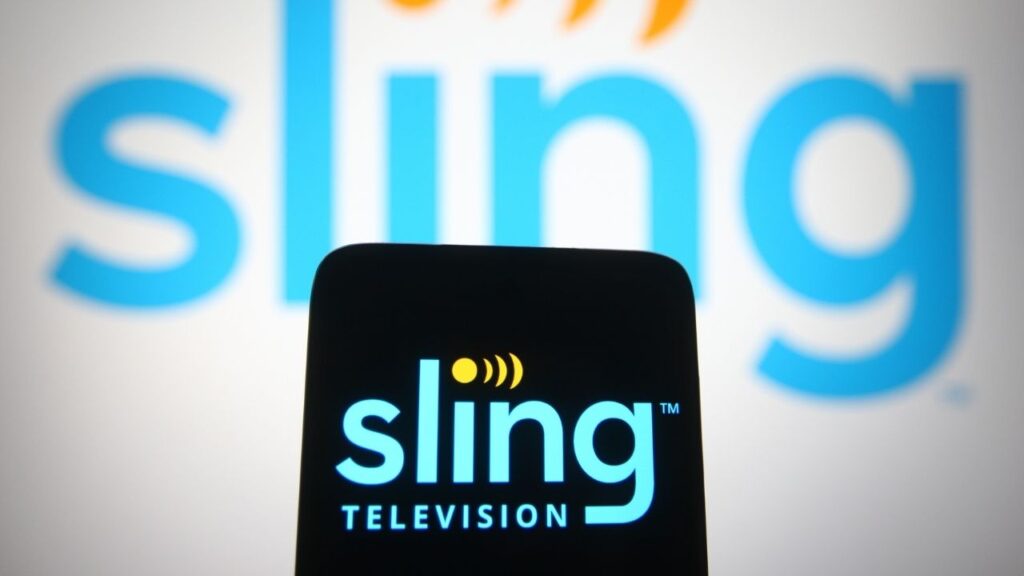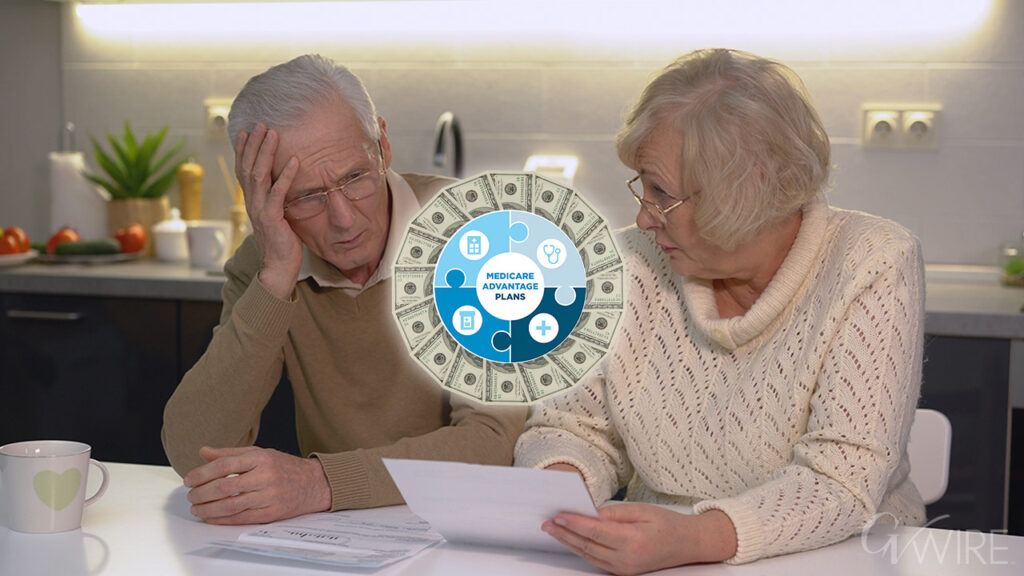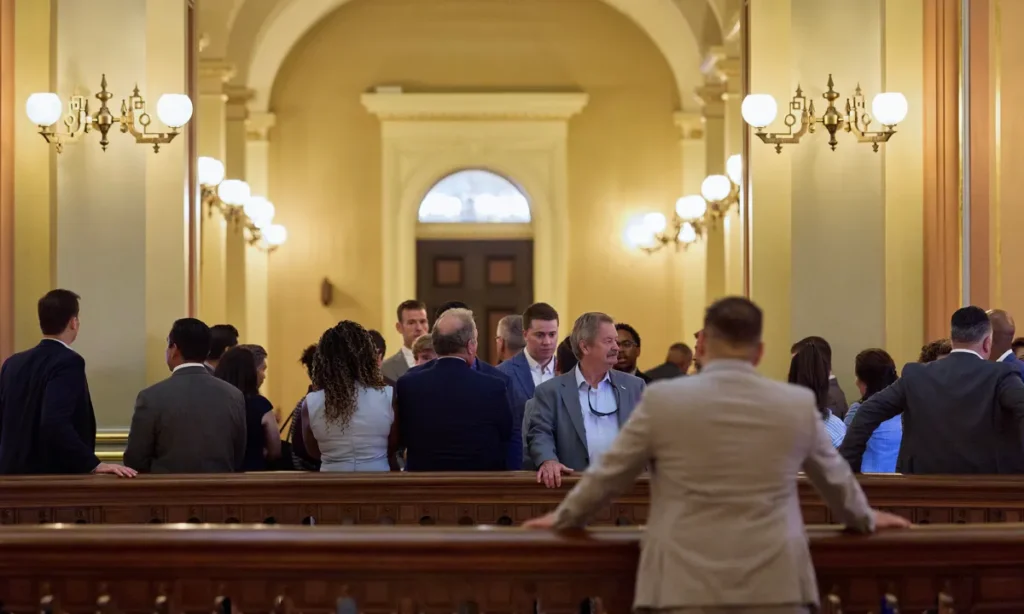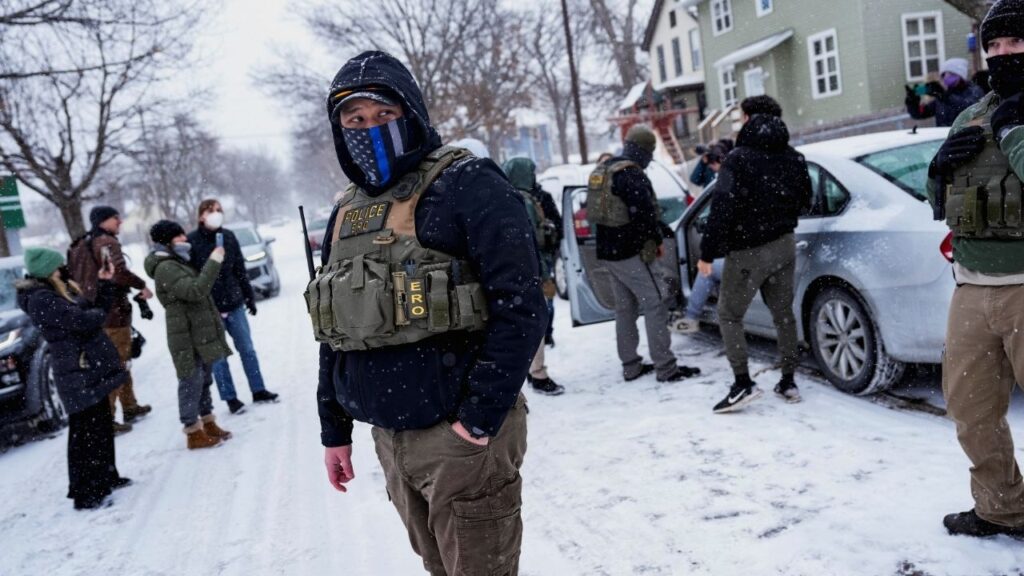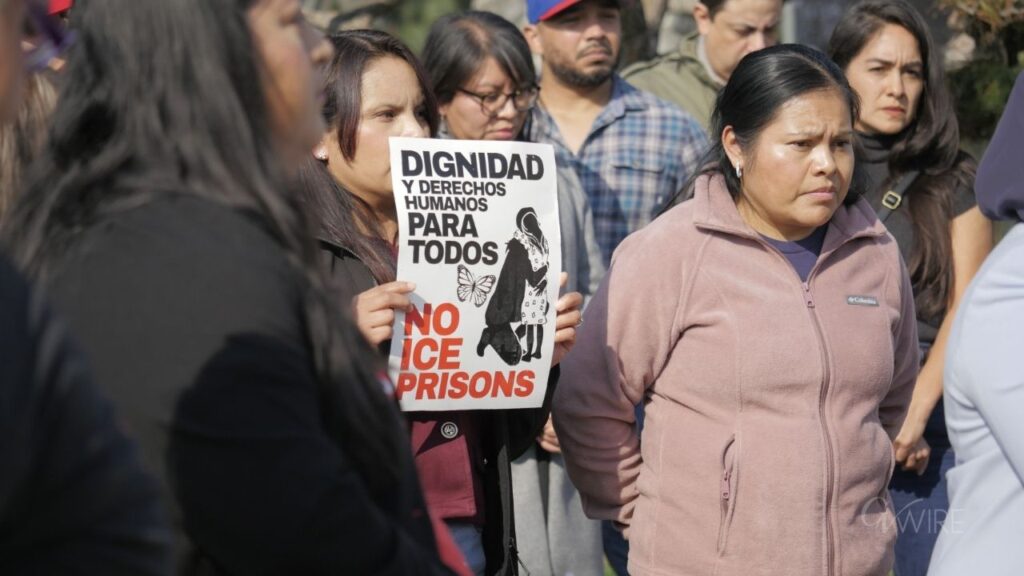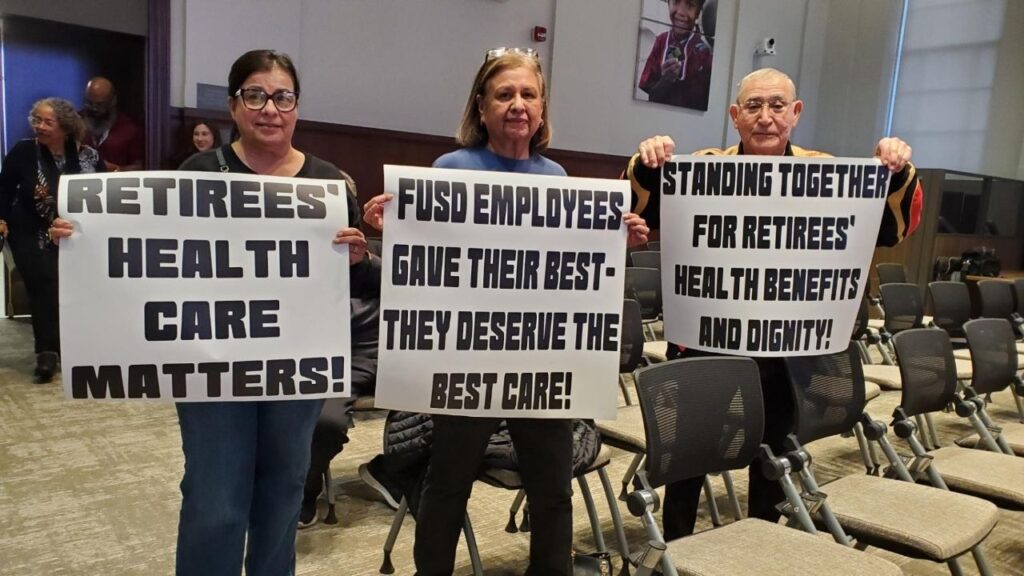Share
When schools across the Valley abruptly closed after March 13 because of the COVID-19 pandemic, educators scrambled to pull together lesson plans to keep students learning as they sheltered at home.
Some teachers banded together to get classes posted onto YouTube channels, while others quickly set up teleconference classes and office hours for students.
And, all over the area, many teachers reached out to their students by phone and by email, trying to bridge the distance created by the school closures.
Waiting for Teacher’s Call
But there have been gaps. Although Fresno Unified spokeswoman Nikki Henry said last month that teachers were calling their students at least once weekly, parents like Carmen Zamora waited weeks for a phone call.
Zamora, who lives in southeast Fresno, said she was disappointed that it took her son’s Balderas Elementary School kindergarten teacher so long to call.
She’s worried that his reading skills, which were lagging, will deteriorate even more in the coming months if there’s no curriculum specifically focused on boosting his reading abilities.
Zamora, who is a member of GO Public Schools Fresno, said she’s heard from parents all over Fresno that their children’s teachers have been slow to reach out — if they reached out at all. GO Public Schools Fresno is an education advocacy nonprofit that supports community efforts to expand access to quality education in the city’s underserved neighborhoods
She said parents are aware of what’s happening in other districts as well as other schools in the city. They know that teachers at some magnet and charter schools were already doing targeted lessons with students prior to spring break, even as Fresno Unified was providing little direction to parents and students other than the generalized lesson plans posted on the district website, Zamora said.
Consistency Is Important
Now working from home full-time, Zamora is like many moms in California who have had to take on the extra burden of keeping their kids connected with school while working full-time and running the household.
She welcomes all the help she can get in her new role as mommy-teacher.
But when the phone didn’t ring, “I was like, wow, why has my teacher not communicated with me? Is it because of the ZIP code? Because my son’s school is not a magnet school? I don’t think it’s fair,” she said. “The district needs to make sure all schools are doing it.”
Contact with parents and students seemed to vary among teachers, parent Elisha Henderson said. Her older daughter, a sophomore at Bullard High School, was already getting lessons from her teachers prior to spring break.
But by the third week of the school closures, Henderson had yet to hear from her younger daughter’s teachers at Baird Middle School.
“I don’t know what Fresno Unified is doing,” she said.
Parents Want More for Kids
The lack of communication has sparked comments and criticism on social media, such as these recent tweets. (“sjw,” which is referenced in the tweet string below, stands for “social justice warriors.”)
I know the trustees collectively are great sjw but what the instructional plan pic.twitter.com/XezbKL9QoS
— MDM Jr. (@LincolnFresno) April 2, 2020
Would like to see teachers provide instruction via Zoom (live and/or recorded). Any chance this can happen before June 4th? Preferably after Spring Break. Please and thank you!
— Feisty Latina💪🏽 (@DoxieMamacita) April 5, 2020
After spring break more online learning opportunities & contacts will be made. I wouldn’t think of this as “online classes” like an adult or college student might take though. Older students will be contacted via Fusd student email. I believe most schools have called all parents.
— Jon Bath (@jontbath) April 5, 2020
But communication isn’t the only concern for parents.
Zamora and other parents submitted comments to the Fresno Unified school board at its April 1 board meeting, asking the district to step up efforts to provide more academically rigorous coursework.
Parent Octaviana Gonzalez, whose children attend Sunset Elementary, asked to have more worksheets added to the paper packets of lessons “so they can have enough work for the week, in my case this packet only last two days.”
Even student trustee Richard Romero said he had been asked by many students if they would get schoolwork that would affect their semester grade, “or if it’s just busywork that the teachers have been sending out.”
‘Learning Matters’
That prompted a response from Superintendent Bob Nelson at the board meeting: “I bristle a little bit, I struggle with the concept of busywork, because it implies the only reason we’re learning is for a grade, and that’s a hustle. We learn because learning matters.”
Some Fresno Unified parents are frustrated because they know that students in neighboring districts appear to be getting more through distance learning: More communication with teachers, more real-time classes online, and better lesson plans, said Mike Espinoza, executive director of GO Public Schools Fresno.
It’s tough on parents, Espinoza said, “when you see other kids getting the attention yours are not getting.”
If some Fresno Unified parents appear impatient, it’s because they are uncertain about how their kids will finish out the school year with distance learning, he said: “Parents want to know what the plan is.”
Getting Access to Devices
The plan for many districts is to provide a laptop or tablet and help students obtain an internet connection. Madera Unified has set a goal that 100% of its students will have access to online learning and is checking with families to find out who’s in need of a device.
Fresno Unified has been making appointments for families to come to schools to pick up laptops or tablets, depending on their grade level. Many are devices that students were already using at school.
@fresnounified IT team sanitizing and re-imaging 40,000 laptops for delivery to our 4th-12th graders round the clock. #ServiceAboveSelf #AnythingForKids pic.twitter.com/fiT3w18r5l
— Bob Nelson (@BobNelson_FUSD) March 31, 2020
Last week at Hoover High School in northeast Fresno, principal Rebecca Wheeler joined other school staffers in the parking lot to assist students arriving in vehicles to pick up laptops. The devices had to be reconfigured so they could be used at home instead of through the school’s internet service, Wheeler said.

She said most Hoover students already had a device at home and didn’t need one from the school.
Parents Say Tablets Are Overdue
But the lack of devices has been a hardship for some in the district.
The parent group Familias Emporedaras, which provided a lengthy public comment to the board at the April 1 meeting, said it had a list with the names of students in need of a tablet “promised by FUSD since 2018, due to their children’s lack of resources to support their academic success” and questioned why the district had not distributed tablets stored in a district warehouse since October 2018.
They also said that the amount of work prepared for students and contact from teachers has been insufficient.
“We want to ask for teachers to please contact students and follow up with them and learn how they can better support them,” the parent group said. “We know teachers are the experts and we, as parents, are willing to support them from home.”
Not All Wanted A Device
The district’s chief technology officer, Kurt Madden, told the board that some families did not accept devices when they were first offered. They’re seeking them now, he said.
Trustee Veva Islas questioned whether the district had reached out to families in a language other than English.
“Maybe there wasn’t effective communication,” she said. “Because what we have learned is that the information about those devices was not released in all languages.
“The one important lesson from that is that we can’t repeat that mistake at all anymore, period. There has to be clear instructions to parents and guardians about the steps that they need to take, in the languages they need, in order to obtain the devices as well as to have the appropriate log-ins and passwords.”
Language not a Barrier to Obtaining Tablets: Fresno Unified
Fresno Unified has made many efforts to distribute tablets over the past two years, including public service announcements provided to English, Spanish and Hmong language television stations, and multilingual notifications in school messengers, fliers and letters sent home to parents, district spokeswoman Henry said.
Prior to the virus outbreak, the district had distributed more than 20,000 tablets to all students who had requested one for home use, she said.
“With an abundance of computer access at school for students, many families may not have felt the need to participate in our free LCD or Project Connect program until now,” Henry said in an email to GV Wire. “No one ever imagined the impact COVID-19 would have on our world, let alone finding school districts almost overnight having to move to online learning.”
Classes Labeled as ‘Optional’
Within days after the schools closed, Fresno Unified posted on its website a calendar of lessons for students of all grade levels in both general education and special education programs, with suggested daily schedules.
On Tuesday, the first day after spring break, the suggested lesson plan for third-graders starts out with the following:
“Community Building Question of the Day: What would you do with $1,000,000.00 ($1 Million)?”
The lesson plans include links to 12 different websites for reading, math, music, and movement activities — and that’s before lunch.
April 14 Grade 3 Options for Learning (Text)
But the website makes it clear that students don’t have to do any of the lessons: “Assignments are optional and will not be required or graded.”
Mandatory = Inequity?
Lessons can’t be mandatory because not all students have the same access to the internet, to devices, or even to the assistance of their parents, many of whom are still working outside the home, trustees and district officials say.
Nelson and Fresno Teachers Association President Manuel Bonilla talked about why lessons are optional in a Facebook Live broadcast on distance learning last Friday that was geared to educators and community members.
“The move to a digital platform has the real potential to actually exacerbate existing inequities that are already present in our system,” Nelson said during the session. “COVID-19 should not be a reason our kids lose ground academically.”
But parents wonder why they should even bother making sure their children buckle down with lessons if they’re optional.
Not Optional for Clovis Unified
By contrast, Clovis Unified isn’t calling its lessons optional, spokeswoman Kelly Avants said. It’s part of the district’s plan to make sure that students stay in the habit of learning, she said.
Once students get the idea that schoolwork is optional, it’s harder to convince them otherwise, Avants said.
“If students get the message we aren’t taking this seriously, how can they be motivated to take this seriously?” she said.
At the same time, the district isn’t penalizing students for failure to engage, but school officials are going to extra lengths — including making repeated phone calls and even going to students’ homes to drop off work packets at the front door — to make sure all students remain connected to schoolwork, Avants said.
Preparing for Distance Learning
Within a few days of the school closures, Clovis Unified teachers had worked up lesson plans that varied according to the needs of students, she said. Lessons for students at Fancher Creek Elementary in southeast Fresno aren’t the same as those for students at Valley Oak Elementary in northeast Fresno, for example.
Clovis Unified teachers will hold office hours by Zoom teleconference at least three times a week and are responsible for connecting with students, assigning work, and providing learning opportunities, she said.
The district put all this in place even though it’s one of the few in the Valley still planning to reopen schools before the end of the school year, pending a green light from county health officials.
The Clovis Unified board likely will review the proposed May 4 reopening at its next board meeting this month.
Learning How to Teach by Distance Learning
Meanwhile, Fresno Unified is still training many teachers on how to use online tools for distance teaching.
The district has scheduled a series of webinars this month that include how to create Microsoft Teams for teleconferencing with students and “Building and Sharing Microsoft Forms for Connecting with Families and Students.”
Trustee Claudia Cazares acknowledged that Fresno Unified has been less nimble than neighboring districts and individual charter schools in planning for distance learning.
Fresno Unified, the state’s third-largest school district, may not move as quickly as those smaller districts because of its size, and “some people are understandably growing impatient,” Cazares said. Even so, she quickly added, she’s not advocating dividing the district into smaller districts.
Cazares said Fresno teachers have been teaming up to develop curriculum, and she expects that they will come back from spring break with more focused communications and instruction for their students.
Seeking Some Grace
At the April 1 board meeting, Nelson noted the unprecedented nature of the coronavirus crisis and asked the community to be patient and to give educators a grace period to prepare for distance learning.
But Zamora, the southeast Fresno parent, said she wants to see less talk and more action to make sure Fresno Unified students don’t get left in the dust.
“I think three weeks is enough grace,” she said.





